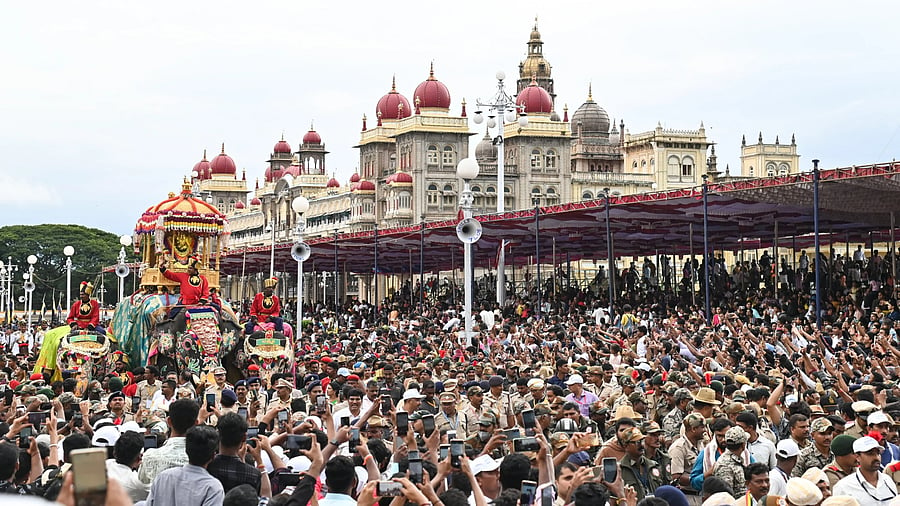
Mysuru Dasara, file photo
Credit: DH/Anup Ragh T
The controversy over writer Banu Mushtaq being chosen to inaugurate this year’s Mysuru Dasara is both unnecessary and misplaced. Mushtaq, who recently became the first Kannadiga to win the International Booker for her acclaimed collection of stories, Heart Lamp, has brought global recognition to Kannada literature. The invitation is an acknowledgement of her contribution to the language and culture, not her religious identity. The objections, mainly from the BJP, stem from a past comment where she questioned the portrayal of Kannada as Goddess Bhuvaneshwari, which she felt was exclusionary to minorities. But the underlying resistance appears rooted in her being Muslim, with some even questioning her reverence for Goddess Chamundeshwari. Such arguments are flawed and unfounded.
History itself exposes this hypocrisy. Renowned poet K S Nissar Ahmed has inaugurated the festival earlier. The tradition of inclusivity runs even deeper. Historical accounts confirm that both Hyder Ali and Tipu Sultan, who ruled Mysuru, continued Dasara celebrations, recognising their cultural significance. After the Wadiyars were restored to power following Tipu’s death in 1799, the festival evolved into its present form and continued to retain its ethos of inclusivity. During the princely state era, Diwan Mirza Ismail played an important part in the festivities under Krishnaraja Wadiyar IV. To this day, Dasara elephants are taken to the Imam Dargah before the procession, while Muslims traditionally assist in mounting the golden howdah. To inject sectarian politics into an event that has historically symbolised harmony is an affront to the Mysuru Maharajas, who nurtured secular traditions.
The demand that Mushtaq prove her belief in idol worship or Sanatana Dharma is absurd. Hinduism itself allows space for atheists and non-believers. Reformers like Dayananda Saraswati, who founded Arya Samaj, opposed idol worship, yet remained deeply rooted in Hinduism. By the same logic, one does not affirm faith in Islam by laying a ceremonial chadar at the Ajmer Sharif dargah. Respecting another’s tradition does not require abandoning one’s own. Despite the Hindu rituals, Dasara is not a private religious event. It is a State function, funded by the taxpayers, and celebrated as nada habba, the festival of the land. Mushtaq has been invited not because of her community, but because of her literary excellence. The legacy of Mysuru is one of openness and plural values. Politicians across the spectrum, including those from the ruling Congress, must refrain from irresponsible statements. Let Dasara remain what it always has been – a symbol of unity, diversity and cultural pride.
